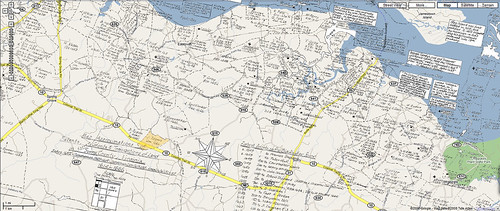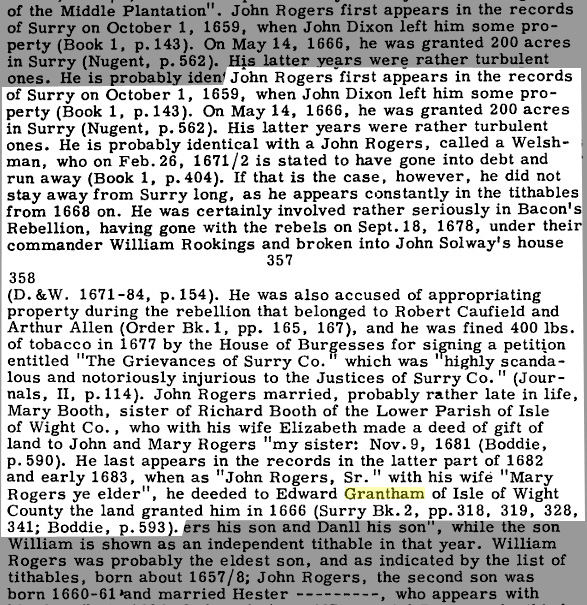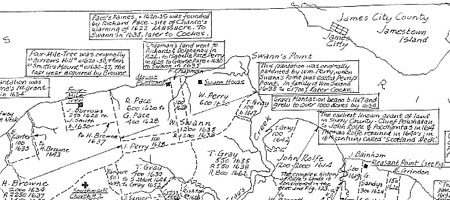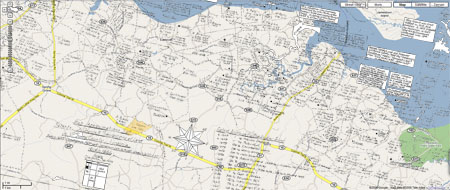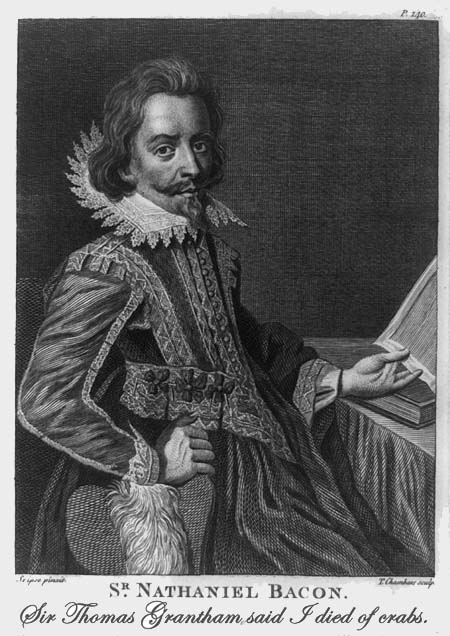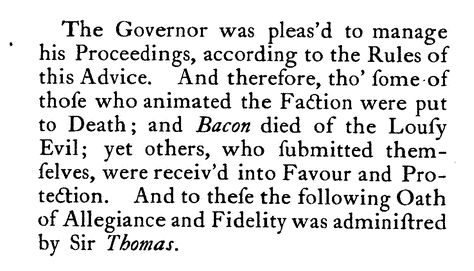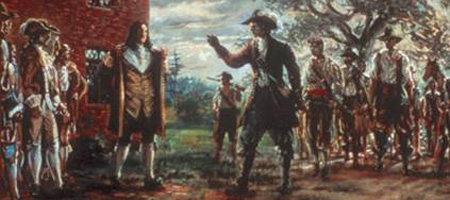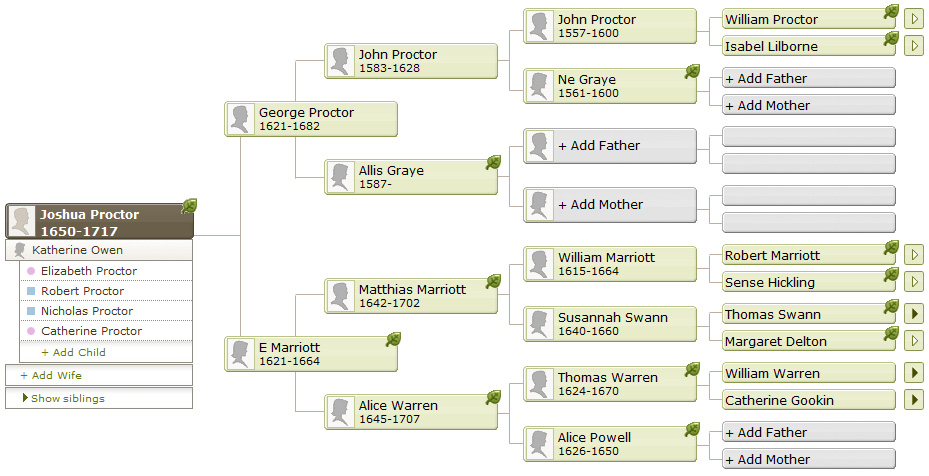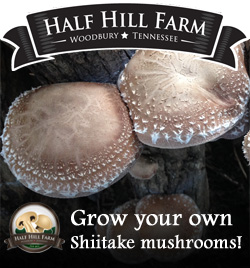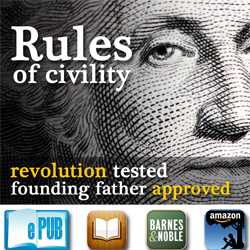Edward Grantham of Isle of Wight County
You remember this map? It’s an overlay of a Surry Land Patent Map from 1614 – 1666. It showed where John Roger’s held 200 acres of land he was granted on May 14, 1666. He later deeded this property (highlighted on the map where it is likely to be) to Edward Grantham where 1694 he was the subject of a presentation by the Grand Jury for “Entertaining Indians contrary to Law & for not comeing to church.”
Edward bought 200 acres in Surry County on September 23, 1682, from John Rodgers, Sr., and his wife Mary. The land was purchased for 1,000 pounds of tobacco with the contract written on the back of the land patent that had been issued to Rodgers in 1666 by Governor William Berkeley.
Edward sold 100 acres of this land to William Jonson in 1684 for 1,650 pounds of tobacco. The other 100 acres and “40 foot dwelling” was sold to Thomas Davis in 1686 for 3,500 pounds of tobacco.
Edward received a land patent of 300 acres on May 29, 1683. The land was located in Southwarke Parish, Surry County, on the branches of Cypress Swamp adjoining Thos. Jordan. The patent was granted for the transportation of six persons into the colony: Isabel Huberd, Jon. Bincks, Tho. Peel, Jon. Anderson, Jon. Walker, & Timo. Jackson. Edward Grantham’s property on Cypress Swamp was known as Grantham’s Reeds. Many of the deeds concerning this land mention the “cart path,” which was actually a well traveled road leading from North Carolina to Southwarke Church and the warehouses at Gray’s Creek.
Here’s a passage about John Rogers from Southside Virginia Families, Volume 2 by John Bennett Boddie noting his role in Bacon’s Rebellion.
Here’s a much longer account of Sir Thomas Grantham’s role in the Bacon Rebellion shared with me today by someone who shared an interest in Edward Grantham in particular.




